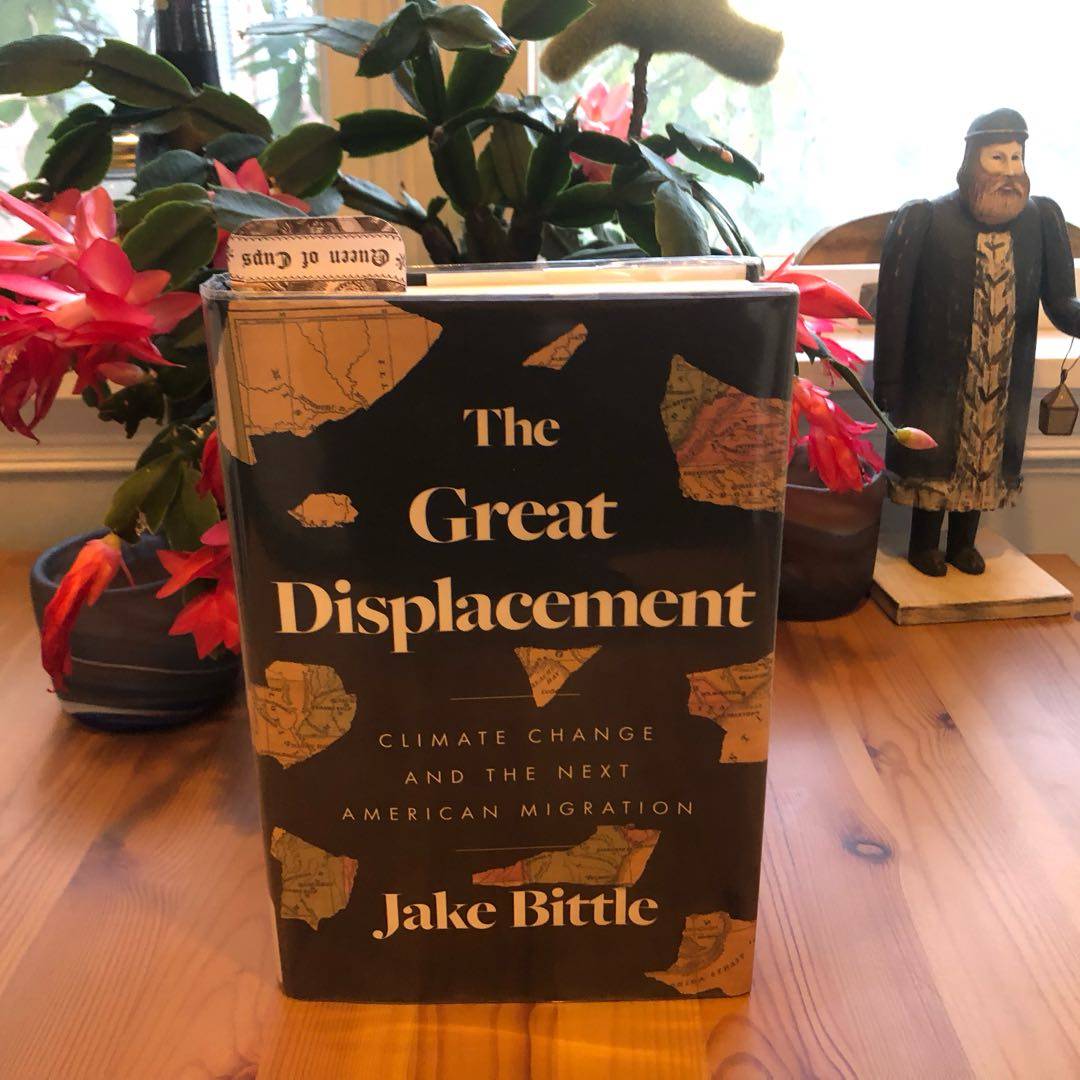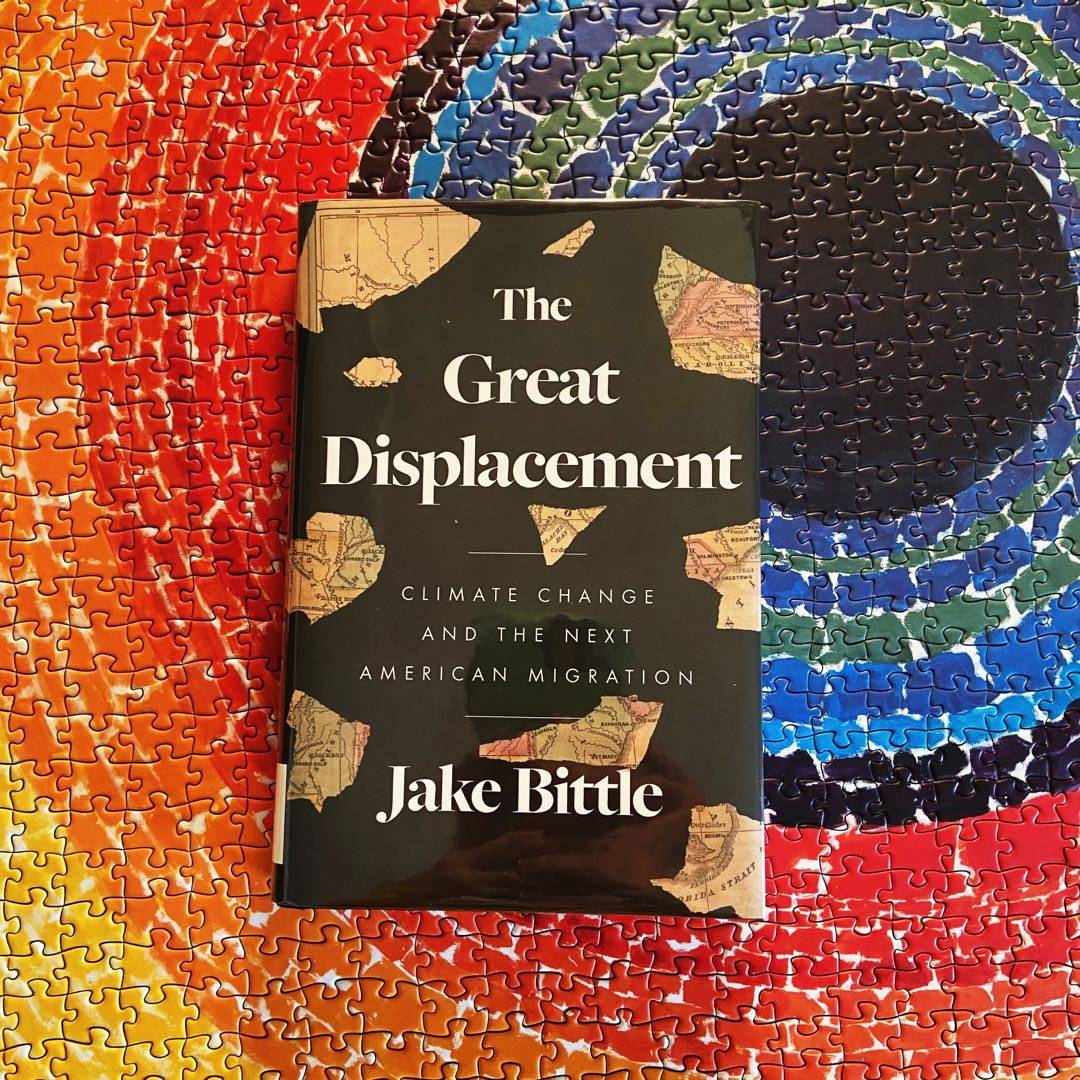
How to review this book. It was extremely well written and informative, but so sobering. It looks at migration patterns mainly in the US of people after devastating natural disasters. I spent all month reading this because it was a tough topic.

How to review this book. It was extremely well written and informative, but so sobering. It looks at migration patterns mainly in the US of people after devastating natural disasters. I spent all month reading this because it was a tough topic.

Jake Bittle takes a gloomy present and extends it to the darkest possible (and likely) future. He offers a little hope, but impacts of climate change are largely irreversible without immediate changes to modern on-demand life. So only read this book if you feel emotionally capable of coping with extremely grim reality. 🥵

“The prime culprit in Princeville‘s destruction, as in Lincoln City‘s, is not nature or even climate change, but the many-stranded racism of American society, the silent hierarchy that divides land along lines of race and class.”